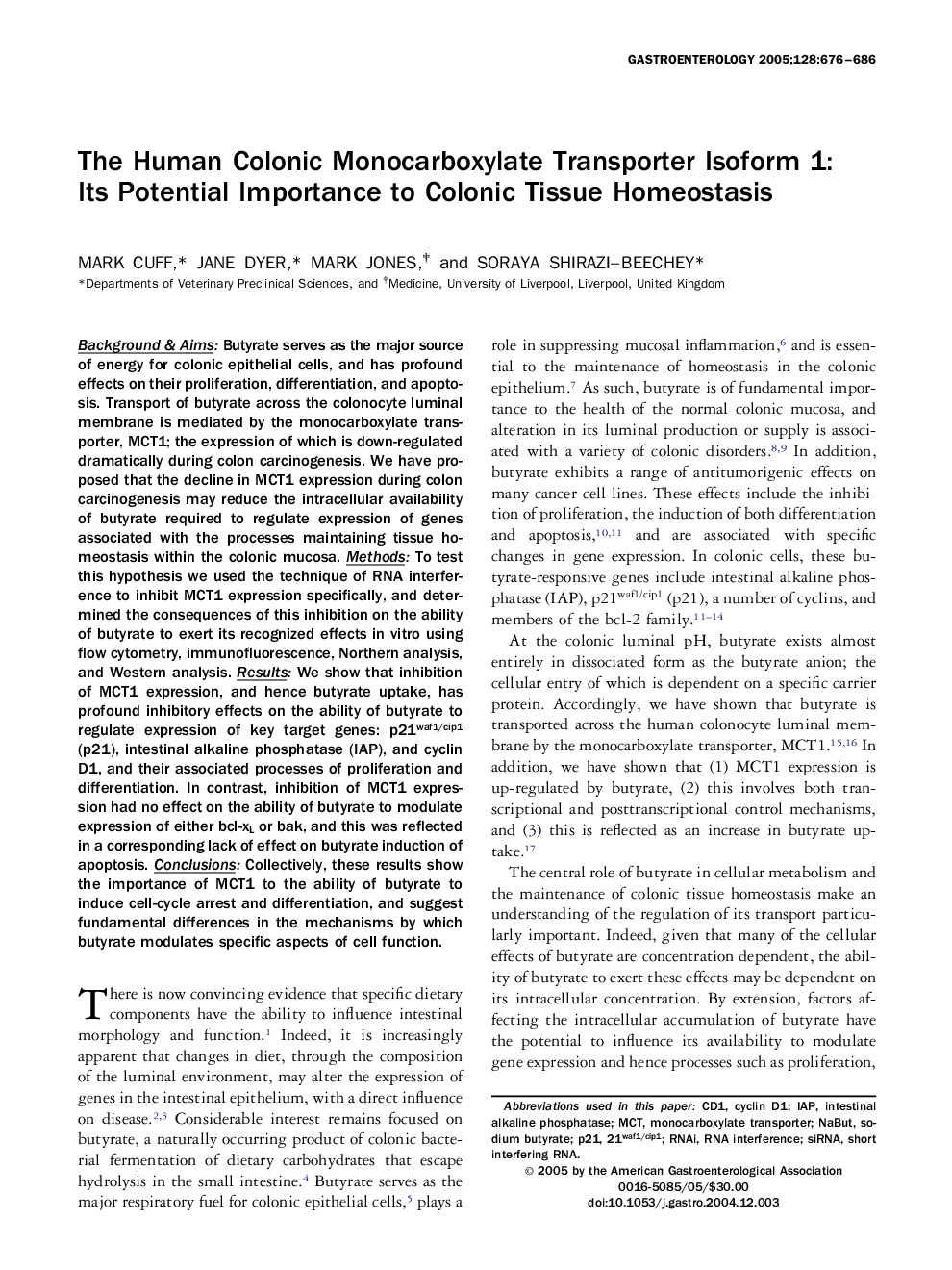| Article ID | Journal | Published Year | Pages | File Type |
|---|---|---|---|---|
| 9245018 | Gastroenterology | 2005 | 11 Pages |
Abstract
Background & Aims: Butyrate serves as the major source of energy for colonic epithelial cells, and has profound effects on their proliferation, differentiation, and apoptosis. Transport of butyrate across the colonocyte luminal membrane is mediated by the monocarboxylate transporter, MCT1; the expression of which is down-regulated dramatically during colon carcinogenesis. We have proposed that the decline in MCT1 expression during colon carcinogenesis may reduce the intracellular availability of butyrate required to regulate expression of genes associated with the processes maintaining tissue homeostasis within the colonic mucosa. Methods: To test this hypothesis we used the technique of RNA interference to inhibit MCT1 expression specifically, and determined the consequences of this inhibition on the ability of butyrate to exert its recognized effects in vitro using flow cytometry, immunofluorescence, Northern analysis, and Western analysis. Results: We show that inhibition of MCT1 expression, and hence butyrate uptake, has profound inhibitory effects on the ability of butyrate to regulate expression of key target genes: p21waf1/cip1 (p21), intestinal alkaline phosphatase (IAP), and cyclin D1, and their associated processes of proliferation and differentiation. In contrast, inhibition of MCT1 expression had no effect on the ability of butyrate to modulate expression of either bcl-xL or bak, and this was reflected in a corresponding lack of effect on butyrate induction of apoptosis. Conclusions: Collectively, these results show the importance of MCT1 to the ability of butyrate to induce cell-cycle arrest and differentiation, and suggest fundamental differences in the mechanisms by which butyrate modulates specific aspects of cell function.
Keywords
Related Topics
Health Sciences
Medicine and Dentistry
Gastroenterology
Authors
Mark Cuff, Jane Dyer, Mark Jones, Soraya Shirazi-Beechey,
